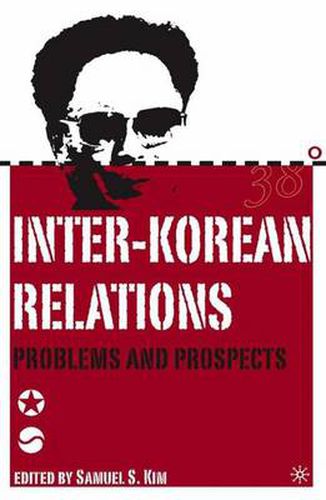Readings Newsletter
Become a Readings Member to make your shopping experience even easier.
Sign in or sign up for free!
You’re not far away from qualifying for FREE standard shipping within Australia
You’ve qualified for FREE standard shipping within Australia
The cart is loading…






This title is printed to order. This book may have been self-published. If so, we cannot guarantee the quality of the content. In the main most books will have gone through the editing process however some may not. We therefore suggest that you be aware of this before ordering this book. If in doubt check either the author or publisher’s details as we are unable to accept any returns unless they are faulty. Please contact us if you have any questions.
In post-cold War thinking, North Korea was expected to collapse and be absorbed into a single Korean state by the democratic regime in South Korea. Fifteen years later, this has not happened, and June 2000 saw a summit making the warmest inter-Korean relations yet. Over that time period, the two Korean states found instead new mechanisms and methods for interacting with each other on the level of de facto if not yet completely de jure sovereign states and have begun to overcome some of the shadows cast by the partition and violent war that befell the peninsula following World War II. This book examines the origins, dynamics, and impacts of these multi-level relations between North and South Korea, situating them variously as two incomplete nation-states, as a single national entity, and within a larger international environment. The Contributors demonstrate how inter-Korean relations have fostered new forms of conflict management and reconciliation on the peninsula.
$9.00 standard shipping within Australia
FREE standard shipping within Australia for orders over $100.00
Express & International shipping calculated at checkout
Stock availability can be subject to change without notice. We recommend calling the shop or contacting our online team to check availability of low stock items. Please see our Shopping Online page for more details.
This title is printed to order. This book may have been self-published. If so, we cannot guarantee the quality of the content. In the main most books will have gone through the editing process however some may not. We therefore suggest that you be aware of this before ordering this book. If in doubt check either the author or publisher’s details as we are unable to accept any returns unless they are faulty. Please contact us if you have any questions.
In post-cold War thinking, North Korea was expected to collapse and be absorbed into a single Korean state by the democratic regime in South Korea. Fifteen years later, this has not happened, and June 2000 saw a summit making the warmest inter-Korean relations yet. Over that time period, the two Korean states found instead new mechanisms and methods for interacting with each other on the level of de facto if not yet completely de jure sovereign states and have begun to overcome some of the shadows cast by the partition and violent war that befell the peninsula following World War II. This book examines the origins, dynamics, and impacts of these multi-level relations between North and South Korea, situating them variously as two incomplete nation-states, as a single national entity, and within a larger international environment. The Contributors demonstrate how inter-Korean relations have fostered new forms of conflict management and reconciliation on the peninsula.